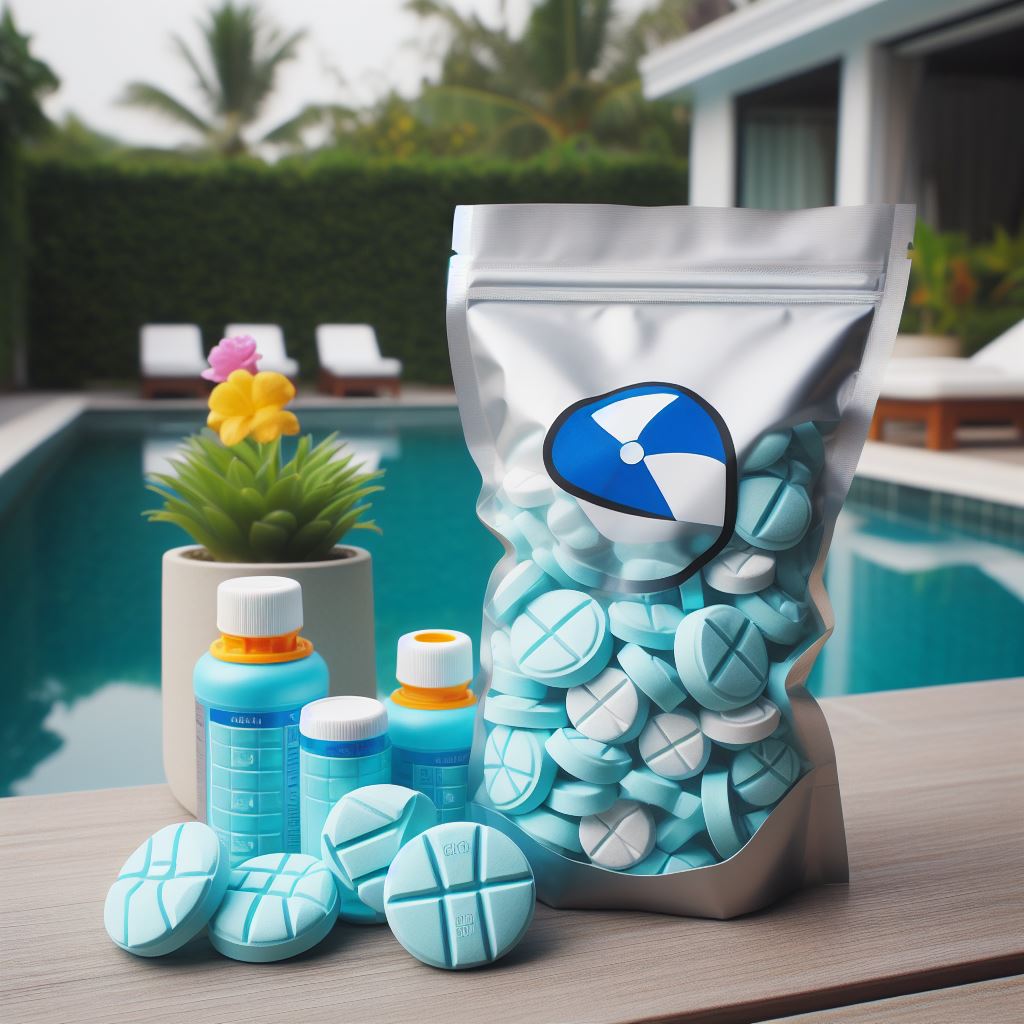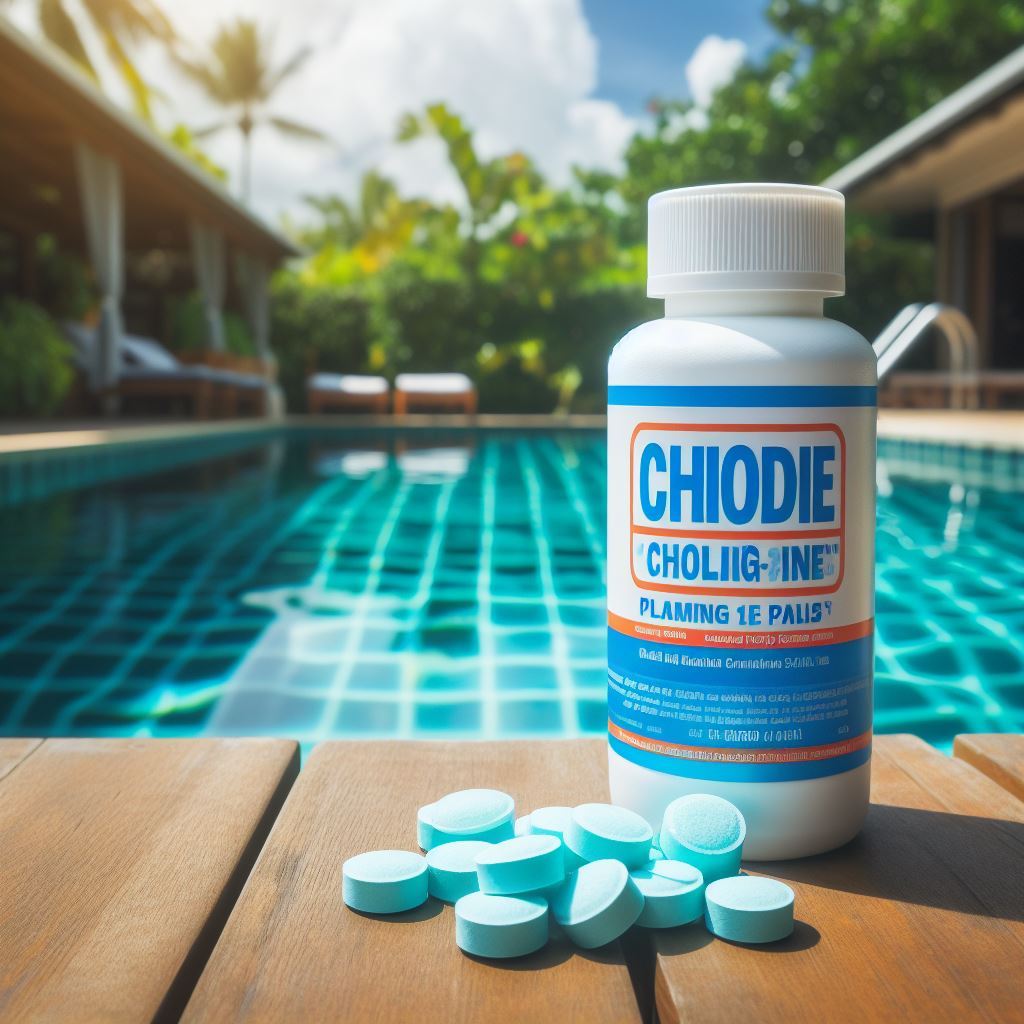In the hot summer, swimming has become the first choice for many people to escape the heat. However, the safety and hygiene of swimming pool water quality are directly related to the health of swimmers. In order to keep your swimming pool water clear and pure, it is crucial to choose the right disinfectant. Among the many disinfectants, swimming pool chlorine tablets and other disinfectants such as 75% alcohol solution, bleach, hydrogen peroxide, etc., who is better? Let’s find out.

I. The unique advantages of swimming pool chlorine tablets
1. Powerful sterilization ability
Swimming pool chlorine tablets, especially those with trichloroisocyanurate as the main component, have powerful sterilization and disinfection effects. It can effectively remove bacteria, viruses and other microorganisms in the swimming pool to ensure water quality safety. In comparison, although disinfectants such as 75% alcohol solution and bleach also have good disinfection effects, swimming pool chlorine tablets are more efficient and more effective when treating large amounts of water.
2. Precisely control the dose
One of the great advantages of pool chlorine tablets is the ease of precise dosage control. Swimming pool chlorine tablets, represented by brands such as Wanxiaoling, are usually designed to be instant-dissolving. Users can accurately calculate and put in the appropriate amount of chlorine tablets according to the specific size of the swimming pool water. This precise control not only ensures the disinfection effect, but also avoids waste and potential risks caused by excessive use.
3. Affordable and easy to use
Swimming pool chlorine tablets are usually sold in large drums or tablet packages, which are easy to store and not prone to expiration. For example, the Wanxiaoling brand of swimming pool chlorine tablets has won wide recognition in the market for its high cost performance and stable quality. Users do not need to purchase frequently, reducing the trouble of storage and management. At the same time, the use of swimming pool chlorine tablets is relatively simple. You only need to follow the instructions and do not need complicated operations.

II. Limitations of other disinfectants
1.75% alcohol solution
Although 75% alcohol solution is a widely used and effective disinfectant, it is insufficient when treating swimming pool water. The volatility and solubility of alcohol limit its use in large amounts of water, and its cost is high, making it unsuitable as the main means of daily disinfection of swimming pools.
2. Bleach
Although bleach (chlorine-containing bleach) has powerful disinfection capabilities, it is highly irritating and corrosive and may have adverse effects on swimming pool equipment and human skin. In addition, the dilution ratio and usage method of bleach are relatively complex, requiring users to have certain professional knowledge and operating experience.
3.Hydrogen peroxide
Hydrogen peroxide works well as a safe disinfectant in homes. However, in swimming pool disinfection, the disinfection effect of hydrogen peroxide is relatively weak and takes a long time to take effect. At the same time, the cost of hydrogen peroxide is relatively high and is not suitable as the first choice for daily disinfection of swimming pools.
III. Conclusions
To sum up, swimming pool chlorine tablets have significant advantages in the field of swimming pool disinfection. Its powerful sterilizing ability, precise dosage control, economical, and convenient use make swimming pool chlorine tablets an ideal choice for daily disinfection of swimming pools. In comparison, other disinfectants have certain limitations and shortcomings in swimming pool disinfection.

 Instant
Quote
Instant
Quote Email
Us
Email
Us